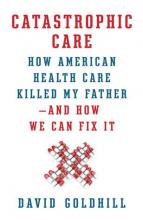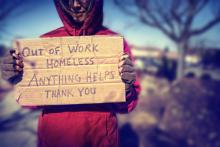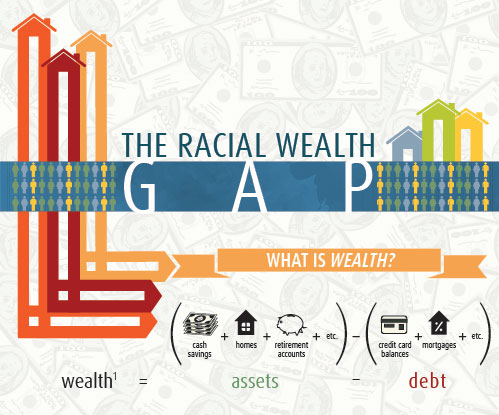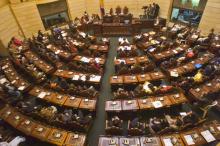Economic Justice

Pope Francis on Wednesday denounced consumerism and what he called the “culture of waste” of modern economies, especially when it comes to food.
“Throwing away food is like stealing from the table of those who are poor and hungry,” he said during his weekly audience in St. Peter’s Square.
His words came on the day the United Nations launched an anti-food waste campaign to mark World Environment Day.
In a New York Times op-ed, Mark Bittman writes about the hyprocrisy of congressional representatives who use the Farm Bill to cut SNAP yet also recieves thousands in USDA farm subsidies and direct payments. The current version of the House farm bill proposes $20 billion in cuts to SNAP. Bittman suggests an alternative solution.
"In other words, without hurting conservation or poor people or foreign aid or progressive and traditional farming, you could achieve targeted savings simply by letting direct payments go away and refusing to boost the crop insurance scam."
Read more here.

A recent Pew poll revealed a significant shift in American families. Four in 10 of this country’s households now rely primarily on the income of women.
This is both good news and bad. For many women, new opportunities are allowing them to be the primary breadwinners in their families. In some careers, women are chipping away at the very real glass ceiling so many have and continue to face. Our efforts towards equality have made some strides. Some strides.
At the same time, a significant majority of households who rely primarily on women’s incomes are single-mother households living in poverty or near-poverty. Structural barriers lead almost inexorably to more complicated and difficult lives for these families. From health care and food costs to child-care and educational expenses, they face greater challenges because of structural obstacles we so often unwittingly endorse and from which we even benefit.
Some things never change.

EVERY TIME I fly into Ontario, Calif., I see neat blocks of gleaming, low-rise warehouses surrounded by well-manicured trees and shrubbery. I now know that what goes on inside those buildings is not nearly so pretty.
As a board member of People of Faith United for Worker Justice, a local faith-rooted worker justice organization, I have seen the dismal working conditions inside several of these warehouses and have heard the testimonies of workers who have been seriously injured on the job. Eighty-five percent of the warehouse workers in Southern California earn minimum wage and receive no health benefits, even though their jobs entail unloading and reloading heavy boxes.
Since many of these workers are hired through temp agencies, which are often located inside the warehouses, workers’ rights are routinely abused. When someone is injured, instead of being cared for, he or she is simply not called back to work the next day. When workers complain about poor working conditions—such as a lack of breaks, access to bathrooms, or having to lift heavy boxes into freight trucks in 108-degree temperatures—the managers tell them it’s not their responsibility because the workers are employed by the temp agency. The temp agencies in turn claim they are not responsible for conditions in the warehouses because the agencies are separate companies.
California is the facing a new challenge: getting young adults to enroll in the Affordable Care Act. More than 2 million Californians, ages 19 to 34, are uninsured. Getting these individuals enrolled is crucial to balancing the cost of older, sicker patients. The state is developing media strategies to specifically target young adults and encourage to them buy insurance. The Los Angeles Times reports:
The success of the healthcare law "depends on reaching everyone who is uninsured, but particularly young people who may feel like they don't need insurance," said Larry Levitt, a senior vice president at the Kaiser Family Foundation.
Read more here.

This week the company my husband works for unveiled the health-insurance plans available to us beginning July 1. If we chose the plan closest to our current plan, our premium would nearly double and our office visit co-pays would increase 25-50 percent.
I am so glad we are going on Medicare in August.
Medicare isn't perfect by any means. It isn't even cheap. Just the insurance (Medicare medical, Medicare supplement, prescription) is going to cost us more than $500 a month, and that doesn't include the deductible or the prescription co-pays. And that's for this year. Who knows what it will cost 10 years from now?
I was so ready to read a book that would solve America's health-care crisis.
Besides, David Goldhill's title is irresistible: Catastrophic Care: How American Health Care Killed My Father - And How We Can Fix It.

There should be no poor among you - Deuteronomy 15:4
This is one of the few commands virtually all religious people easily – even eagerly – follow.
We just do it our own way.
The biblical and cultural context and overriding assumption is that those of us with means should contribute – willingly and without conditions – to those among us who, for whatever reason, are needy.
We are not to judge – or distance ourselves – from those who have little – or cannot pay us back. In fact these are the ones Jesus commands that we – and by extension he – should invite to a banquet (Luke 14:12-14).
But we seem to have ‘no poor among us’ – we do our best to exclude, ignore, or even ban them when we do see them.
Although the Census Bureau has reported that 15 percent of Americans live in poverty, when assets and wages are factored in half of Americans are below or near poverty line. Alternet has compiled a list of five reasons poverty affects so many Americans.
1. Almost half of Americans had NO assets in 2009 - In 2009 47% of Americans has more debt than assets.
2. It’s Even Worse 3 Years Later - An OECD report states that “inequality has increased by more over the past three years to the end of 2010 than in the previous twelve,” with the U.S. experiencing one of the widest gaps among OECD countries.
3. Based on wage figures, half of Americans are in or near poverty - The highest wage in the bottom half of earners is about $34,000. To be eligible for food assistance, a family can earn up to about $30,000 for a family of four.
4. Based on household expense totals, poverty is creeping into the top half of America - After taxes and expenses, a family making $60,000 a year is left with nothing except debt.
5. Putting it in Perspective - While food support was being targeted for cuts, just 20 rich Americans made as much from their 2012 investments as the entire 2012 SNAP (food assistance) budget, which serves 47 million people.
Read more here.
 The United States is the richest country in the world, but only three-quarters of Americans have enough to eat.
The United States is the richest country in the world, but only three-quarters of Americans have enough to eat.
New data from the Pew Research Center shows that nearly a quarter of Americans had trouble putting food on the table last year — 24 percent is a lot of hungry people in the richest country in the world. It’s not normal, either – most other advanced economies had much lower rates of hunger. We think that the U.S. economy is similar to that of Canada or Britain; our hunger rate is closer to that of Indonesia, South Korea, or Greece.
Numbers like that are shocking, because we prefer to think of ourselves in nationalistic terms. “The richest, most powerful country on Earth” definitely makes us feel better than realizing that things aren’t so great for many of us. One in four of us is hungry.
We don’t like to think about this, but we aren’t doing so well by a lot of standards. Last month, UNICEF published a report on child wellbeing in developed countries. The United States was ranked 26 out of 29, above Lithuania, Latvia, and Romania. Our children were doing worse than those of Greece.
Is this really where we want to be?

While the consequences of social privilege are alarming for numerous reasons, we are reminded that such systematic inequalities are by no means unique to the current day and age. For example, during Jesus’ ministry he encountered a predominant culture that distributed a wide variety of elite benefits based upon gender, class, ethnicity, and other forms of false favoritism. However, one of the primary distinctions of Jesus’ life, which he continually modeled for his disciples, was a prophetic confrontation with unjust structures of social privilege.
As Jesus accompanied women, tax collectors, lepers, prostitutes, and others firmly placed on the underprivileged margins of society, he repeatedly sought the reversal of embedded discrimination and disadvantage. In doing so, not only did Jesus promote Good News of eternal life for after death, but he sought to “let the oppressed go free” (Luke 4:18) for the fullness of life after birth.
While Jesus continually endorsed the revolution of unjust social privilege, and although he taught his followers to do likewise in his name, the harsh reality is that privilege based on prejudice is profitable, which makes it difficult – if not impossible – for those in power to surrender voluntarily

The Farm Bill might not sound like the most exciting piece of legislation ever to come out of Congress, but it has huge implications for nutrition in the United States. Among other things, the Farm Bill determines support to small farms, promoting farmers’ markets, and, oh yeah, the Supplemental Nutrition Assistance Program (SNAP), what we used to call food stamps.
SNAP is one of the most effective anti-poverty programs, set to expand with increased need and decrease when people no longer need help. Most benefits are modest, and the majority of recipients who are able to work do. In fact, SNAP is effective because it not only helps people get the food they need, but its benefits encourage them to find work.
Unfortunately, it seems like both houses in Congress are set on changing the SNAP program for the worse. Putting aside the cuts the House has planned for nutrition assistance that would kick 2 million people off the program, the Senate recently accepted a change to SNAP that flies in the face of the criminal justice system and will probably have racially discriminating effects.

Where there is hope, there is future.
Today is Hunger Action Day.
For many in my beloved Golden State, today will go unnoticed. It will be what it always is — a Wednesday full of its special nuances with perhaps homework, meals and snacks, pleasant weather, and most definitely, a dose of stressful traffic. It will be normal. Life will be as it always is. For others however, myself included, this is the day we have been waiting for. In fact, you could even say, that this is the day we’ve been hungry for.
More than 300 California residents from all around the state — from the beach towns to the gritty parts of the city — have committed their day, their energy, and their hearts to visiting with their representatives to advocate for their neighbors and friends who every day face hunger. To these few hundred residents who have taken the time to journey to Sacramento, the opportunities that today provide could be life changing for thousands.

Last week Pope Francis spoke out against the cult of money. Here is how Catholic News Service's Carol Glatz summarized his remarks:
Pope Francis called for global financial reform that respects human dignity, helps the poor, promotes the common good and allows states to regulate markets.
"Money has to serve, not to rule," he said in his strongest remarks yet as pope concerning the world's economic and financial crises.
A major reason behind the increase in social and economic woes worldwide "is in our relationship with money and our acceptance of its power over ourselves and our society," he told a group of diplomats May 16.
"We have created new idols" where the "golden calf of old has found a new and heartless image in the cult of money and the dictatorship of an economy which is faceless and lacking any truly humane goal."

How do you love your neighbor when your neighbors sell drugs and exploit young women? I’m serious — this is a legitimate question that I am asking myself a lot lately and I am not sure I have the answer.
Nine years ago my wife and I moved into East Oakland to become a part of a small church community called New Hope and to direct InterVarsity’s Urban Project in the Bay Area. We’ve weathered some challenging experiences: stolen cars, physical assault, hearing a lot of shootings, witnessing a shooting, breaking up domestic violence, seeing a friend’s family torn apart by domestic violence, and endless amounts of trash on the streets. Don’t get me wrong, there is a lot to love about our neighborhood and community, but in recent months I think I’ve reached my limit.
The family that recently moved in across the street is friendly. The folks hanging out on the porch and the kids playing tetherball off the street sign honestly do contribute to the vibrant life of the block. But when I saw a total of 12 drug deals go down in broad daylight in the span of three days, loving my neighbor became a lot harder.

Debt, multitudes think, is bad. It could be good, by helping more people manage the energy of money. The Lord’s Prayer helps the confusion along: some pray to be forgiven debts, others to be forgiven trespasses. Good debt does not trespass. Bad debt is most often done by banks, and trespasses inside people, insidiously, and shames them. Religious institutions help the shame along by mispraying the Lord’s Prayer.
Debt might be good. In his book on Debt: The First 5000 years, David Graeber opens with a story. The story is paradigmatic. A woman tells a man the story about a person who is “under water.” “But, shouldn’t she have to pay her debt?” Should. Have. Pay. Debt. Those four words go together. They mispray the Lord’s prayer. Instead we might pray, “forgive the banks their trespasses into our souls first and then our pocketbooks.”
A week after reaching a five-year low, Americans seeking unemployment benefits rose by 32,000. This is the highest level in six weeks. Although the job market has improved in the lat six months, unemployment applications continue to fluctuate each week. The Associated Press reports:
"The underlying story in jobless claims continues to be one of gradual improvement," said Julia Coronado, an economist at BNP Paribas. Coronado said the small rise in applications "highlight(s) the need to take volatile weekly readings with a grain of salt."
Read more here.
Tuesday the Senate Agriculture Committee passed a new five-year farm bill. The bill cuts subsidy payments and the food stamp program while expanding crop insurance. The Senate bill will reduce spending by $24 billion over 10 years. The bill passed 15-5 in committee with a full Senate vote expected later this month. USA Today reports:
The farm bill passed on Tuesday eliminates $17 billion in farm subsidies, $5 billion a year in direct payments given to farmers regardless of need and reduces $4 billion from conservation programs largely through consolidation. Spending for food stamp programs, used by 48 million Americans, also would be cut by $4 billion.
Read more here.

Recent studies from both the Urban Institute and the Pew Forum tell the story of America's growing racial wealth gap. In the May issue of Sojourners magazine, Otis Moss III talked about the unjust trend:
The call of the church has been, and always will be, to become the compassionate hands and feet of Christ. Poverty, when attached to race, is the original sin of America, a country built by slave labor and enriched by the unfair labor practices of the Industrial Revolution.
Read the full piece HERE.

See the full infographic at the jump.

The stories pastors, chaplains, and charity workers too often hear behind closed doors and through frustrated tears are being brought to light. Acting Secretary of the United States Department of Labor Seth Harris has hit the road to listen to people struggling to get by on the minimum wage.
Courageous people are publicly coming forward to tell their stories of personal pain, indignity, and frustration in the interest of creating the will to increase the federal minimum wage from $7.25 an hour to $9.00 an hour by 2015.
A few things will have to happen for the poverty reduction goal to be hit...India will have to up its game on both economic growth and the distribution of the benefits. As this chart shows, China has mostly run its leg of the relay – with economic growth that has lifted hundreds of millions from poverty and, almost on its own, put the world on trend to reach Kim’s goal.
View interactive charts here.